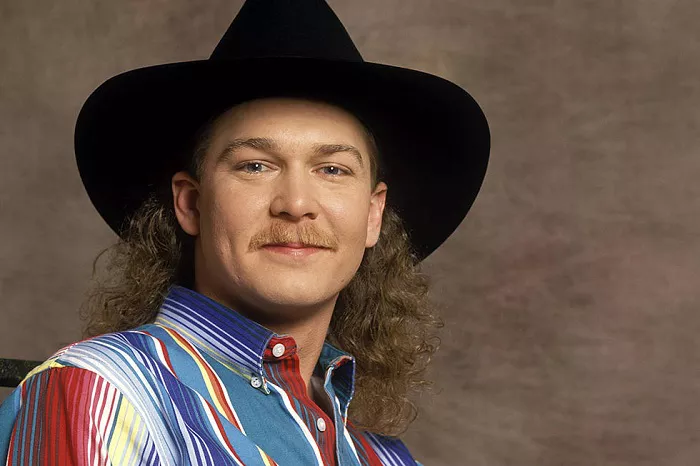Country music is a genre deeply rooted in American culture, with distinct regional influences that have shaped its evolution over time. Two prominent subgenres within country music are Southern and Western country music, each with its unique characteristics, themes, and fan bases. In this article, we will delve into the differences between Southern and Western country music, exploring their origins, musical styles, lyrical themes, and cultural significance.
1. Origins and Historical Context
Southern Country Music:
Southern country music traces its origins to the southeastern United States, particularly states like Tennessee, Kentucky, and Georgia. It has deep ties to Appalachian folk music, blues, and gospel music, blending elements of these genres into its distinctive sound. The emergence of Southern country music can be traced back to the early 20th century, with artists like The Carter Family and Jimmie Rodgers playing a pivotal role in popularizing the genre.
Western Country Music:
On the other hand, Western country music has its roots in the western United States, including states like Texas, Oklahoma, and California. It evolved from cowboy music and the songs of the American West, often featuring themes of ranch life, cowboy culture, and the rugged landscapes of the frontier. Pioneering artists such as Gene Autry and Roy Rogers helped define the Western country music style in the early to mid-20th century.
2. Musical Styles and Instrumentation
Southern Country Music:
Southern country music is characterized by its use of acoustic instruments such as the guitar, fiddle, banjo, and mandolin. It often incorporates elements of bluegrass and folk music, featuring intricate fingerpicking patterns, melodic solos, and tight vocal harmonies. The genre’s sound is warm, earthy, and rooted in traditional melodies and rhythms.
Western Country Music:
In contrast, Western country music typically features a more straightforward and rhythmic approach, with prominent use of the steel guitar, harmonica, and electric guitar. The music often has a twangy or “western swing” feel, incorporating elements of jazz and swing music. The instrumentation reflects the imagery of wide-open spaces, cowboy culture, and the rugged lifestyle of the American West.
3. Lyrical Themes and Subject Matter
Southern Country Music:
Lyrically, Southern country music often explores themes of love, heartbreak, family, and the struggles of everyday life. Songs may delve into personal experiences, relationships, and the complexities of human emotions. There is also a strong tradition of storytelling in Southern country music, with narratives that resonate with listeners on a deeply emotional level.
Western Country Music:
In Western country music, the lyrical themes revolve around cowboy life, the frontier spirit, and the challenges of living in the wild west. Songs may depict tales of cattle drives, gunfights, rodeos, and the beauty of the western landscape. The lyrics often celebrate cowboy values such as independence, resilience, and loyalty, painting a vivid picture of life on the rugged frontier.
4. Cultural Significance and Audience Appeal
Southern Country Music:
Southern country music has a broad appeal, attracting fans from diverse backgrounds who appreciate its heartfelt lyrics, soulful melodies, and rich musical traditions. It has played a significant role in shaping American popular music and has produced legendary artists such as Johnny Cash, Dolly Parton, and Willie Nelson. The genre’s influence extends beyond music, influencing fashion, lifestyle, and cultural norms in the Southern region.
Western Country Music:
Western country music holds a special place in the hearts of those who identify with cowboy culture and the western way of life. It has a dedicated fan base that embraces its unique sound, themes, and imagery. Western country music has also been a source of inspiration for Western-themed films, television shows, and literature, contributing to its enduring popularity among enthusiasts of western history and folklore.
5. Evolution and Contemporary Trends
Southern Country Music:
Over the years, Southern country music has evolved and diversified, incorporating elements of rock, pop, and contemporary sounds. This evolution has led to the emergence of subgenres such as country rock, pop country, and alt-country, expanding the genre’s appeal to new audiences while staying true to its roots. Artists like Taylor Swift, Luke Bryan, and Miranda Lambert have brought a modern edge to Southern country music, attracting a younger demographic of fans.
Western Country Music:
Similarly, Western country music has seen evolution and experimentation, with artists blending traditional western sounds with modern production techniques. While maintaining its authenticity, Western country music continues to resonate with audiences who appreciate its nostalgic charm and storytelling traditions. Contemporary Western artists like Chris Stapleton, Sturgill Simpson, and Colter Wall are revitalizing the genre for a new generation of listeners.
Conclusion
In conclusion, Southern and Western country music represent two distinct yet interconnected branches of the broader country music genre. While Southern country music reflects the rich heritage of the southeastern United States with its folk roots and emotional storytelling, Western country music celebrates the cowboy culture and rugged spirit of the American West through its unique sound and lyrical themes.
Both subgenres have contributed immensely to the cultural fabric of America, influencing not only music but also literature, film, and popular culture. Their diverse styles, themes, and fan bases highlight the richness and versatility of country music as a genre that continues to evolve and thrive in the modern era.
As fans and enthusiasts, we can appreciate the beauty of both Southern and Western country music, recognizing the significance of each in preserving our musical heritage and connecting us to the timeless stories and traditions of the past. Whether you find yourself drawn to the heartfelt ballads of Southern troubadours or the rugged anthems of Western cowboys, there’s a place for everyone in the vast and vibrant world of country music.

